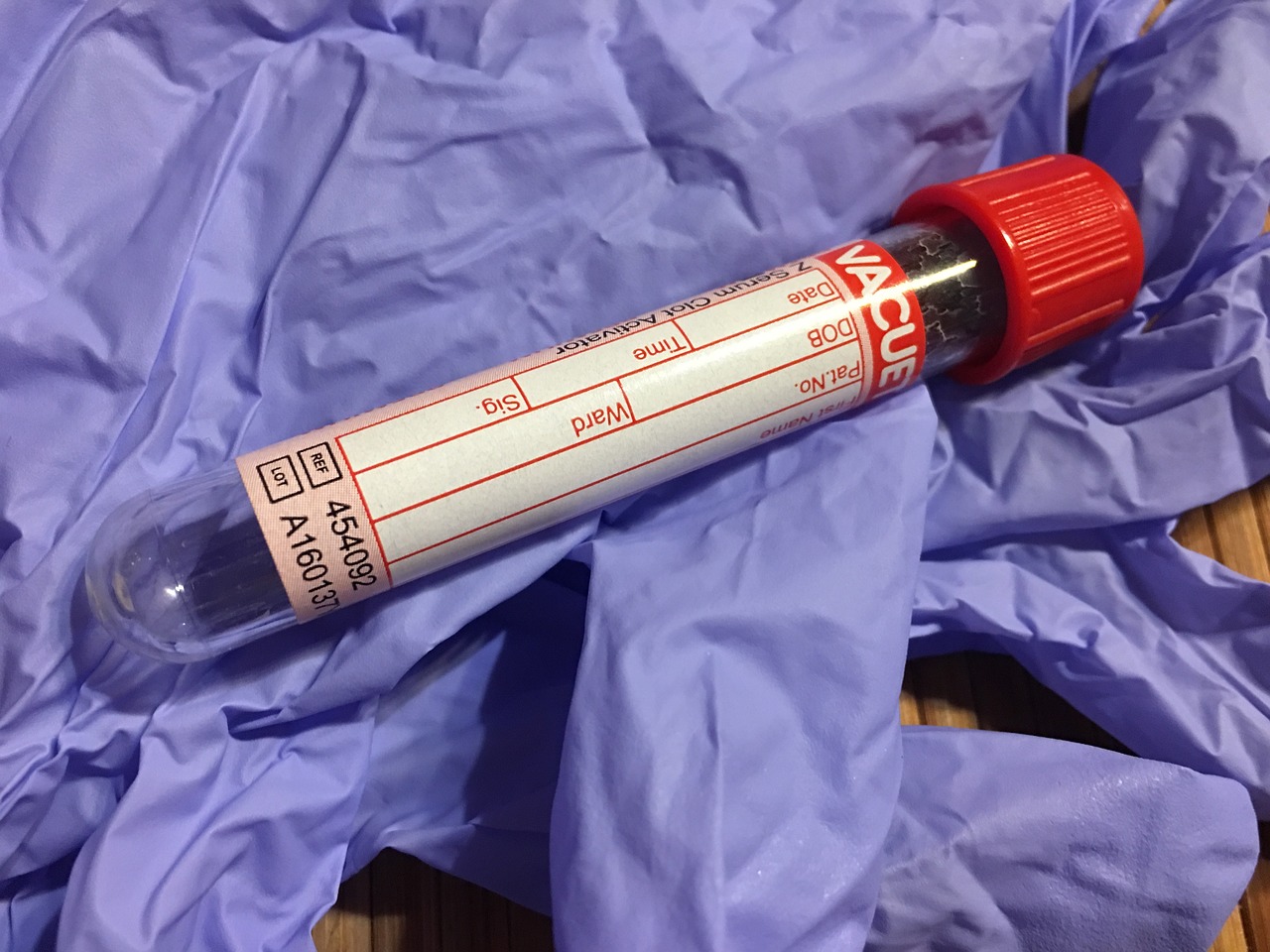When it comes to determining how soon after sex a pregnancy test can accurately work, it’s crucial to understand the intricacies of these tests. Pregnancy tests are designed to detect the presence of the hormone hCG in a woman’s urine or blood, which is produced once a fertilized egg implants in the uterus. The timing of when to take a pregnancy test after intercourse can vary depending on the type of test and the sensitivity of the test to detect hCG levels.
Typically, most standard pregnancy tests recommend waiting until the first day of a missed period to achieve the most accurate results. This usually equates to about two weeks after conception, which is when hCG levels are detectable in the body. However, some early detection tests claim to provide results even before a missed period, but their accuracy may vary.
Factors such as the timing of intercourse, the sensitivity of the test, and individual health factors can influence the accuracy of a pregnancy test. It’s essential to follow the instructions provided with the test kit carefully and consider these factors when interpreting the results.
Interpreting the results of a pregnancy test involves understanding the appearance of faint lines, evaporation lines, and the possibility of false positives or negatives. It’s important to read the results within the specified timeframe and not rely on them after the recommended time has passed.
If you receive a positive result on a pregnancy test, it’s advisable to seek medical advice for confirmation and further guidance on pregnancy planning. Consulting a healthcare provider can help ensure accurate results and provide essential information for the next steps in your journey.

Understanding Pregnancy Tests
When it comes to understanding pregnancy tests, it’s essential to know the different types available and how they work. There are two main types of pregnancy tests: urine tests and blood tests. Urine tests, which are the most commonly used, detect the presence of the hormone hCG in the urine. On the other hand, blood tests are more sensitive and can detect lower levels of hCG earlier than urine tests. These tests work by identifying the hormone produced by the placenta after a fertilized egg attaches to the uterine lining.
For accurate results, it’s crucial to take a pregnancy test at the right time. Most urine pregnancy tests claim to provide accurate results on the first day of a missed period. However, some tests are designed to detect hCG levels earlier, allowing women to test before their period is due. Early testing may increase the risk of receiving a false negative result due to lower hormone levels.
Factors such as the timing of the test, the method used, and individual health factors can affect the accuracy of a pregnancy test. Testing too early or too late in the menstrual cycle, using an expired test kit, or certain medications can all impact the reliability of the results. It’s important to follow the instructions carefully and consult a healthcare provider if there are doubts about the test results.
Interpreting the results of a pregnancy test can sometimes be confusing. Faint lines, evaporation lines, or even false positives and negatives can occur. It’s essential to read the test results within the specified time frame and follow the manufacturer’s guidelines for result interpretation. If there is any uncertainty about the results, seeking medical advice is recommended to confirm pregnancy status and receive appropriate guidance.

When to Take a Pregnancy Test
When considering when to take a pregnancy test, it is crucial to understand the menstrual cycle and how it affects the accuracy of the results. The best time to take a pregnancy test is typically about a week after a missed period. This timing allows for the pregnancy hormone hCG to reach detectable levels in the urine, increasing the likelihood of obtaining an accurate result.
However, some pregnancy tests claim to provide accurate results even before a missed period. While this may sound appealing, it is essential to note that early testing can sometimes yield false negatives due to low hCG levels. It is advisable to wait until after a missed period for the most reliable results.
Factors such as the sensitivity of the test, the concentration of hCG in the urine, and the timing of the test can all impact the accuracy of the results. Taking a pregnancy test too early or too late in the menstrual cycle can lead to false results, causing unnecessary confusion and anxiety.
For individuals with irregular menstrual cycles or uncertainty about ovulation dates, it may be challenging to determine the ideal time to take a pregnancy test. In such cases, consulting a healthcare provider for guidance can provide clarity and ensure accurate testing for pregnancy.

Early Pregnancy Testing
Early Pregnancy Testing is a topic that sparks curiosity and anticipation among many individuals wondering about the possibility of a new life. These tests claim to provide results even before a missed period, offering a glimpse into the unknown with the potential for a surprise or an explosion of emotions.
When considering Early Pregnancy Testing, it is crucial to understand the different types of tests available. Some tests are designed to detect lower levels of the pregnancy hormone hCG, allowing for early detection. These tests may come in the form of **sensitive** **urine** tests or **blood** tests, each with its own level of accuracy and reliability.
One method of Early Pregnancy Testing involves **tracking** the levels of hCG in the blood through **quantitative** blood tests. These tests can detect hCG levels as early as 7-12 days after conception, providing an early indication of pregnancy. However, it is essential to note that the accuracy of these tests may vary depending on individual factors.
Another approach to Early Pregnancy Testing is the use of **early** **detection** urine tests, which claim to provide results before a missed period. These tests work by detecting the presence of hCG in the urine, offering a convenient and **affordable** option for those eager to know their pregnancy status early on.
While Early Pregnancy Testing can offer a glimpse into the future, it is important to approach these tests with caution and **realistic** expectations. Factors such as **timing**, **method** of testing, and individual **health** conditions can all influence the accuracy of the results, leading to potential surprises or disappointments.

Factors Affecting Test Accuracy
When it comes to the accuracy of pregnancy tests, several factors play a crucial role in determining the reliability of the results. Understanding these factors can help individuals make informed decisions and interpret the test outcomes correctly. Here are some key elements that can influence the accuracy of a pregnancy test:
- Timing: The timing of taking a pregnancy test is essential for accurate results. Testing too early or too late in the menstrual cycle can affect the sensitivity of the test and lead to false negatives.
- Method: The method of conducting the test, whether using a urine-based home pregnancy test or a blood test at a healthcare facility, can impact the accuracy of the results. Blood tests are generally more sensitive and can detect lower levels of hCG earlier than urine tests.
- Individual Health Factors: Various health conditions, medications, and fertility treatments can influence the accuracy of a pregnancy test. Certain medical conditions, such as PCOS or early miscarriage, can result in false positive or negative results.
- Quality of the Test: The quality and brand of the pregnancy test can also affect its accuracy. Some tests are more sensitive and reliable than others, so choosing a reputable brand is important for obtaining trustworthy results.
Considering these factors before taking a pregnancy test can help individuals manage their expectations and avoid misinterpretation of the results. If there are any uncertainties or concerns regarding the accuracy of a pregnancy test, consulting a healthcare provider for further evaluation and guidance is recommended.

Interpreting Test Results
When it comes to interpreting the results of a pregnancy test, it’s essential to understand the nuances that can affect the outcome. Here are some key points to consider:
- Faint Lines: Sometimes, a faint line may appear on the test, indicating a positive result. While faint, it still signifies the presence of hCG, the pregnancy hormone. It’s crucial to follow up with another test to confirm.
- Evaporation Lines: These lines can appear after the designated test window, often causing confusion. They are not indicators of pregnancy and should not be considered as positive results.
- False Positives or Negatives: Factors such as expired tests, improper usage, or certain medications can lead to inaccurate results. It’s vital to follow the instructions carefully and consider consulting a healthcare provider for confirmation.
Remember, the accuracy of a pregnancy test result is contingent on various factors, and it’s crucial to approach the interpretation with caution. If you encounter any uncertainty or unexpected results, seeking medical advice is always the best course of action to ensure clarity and guidance moving forward.

Seeking Medical Advice
When it comes to seeking medical advice after taking a pregnancy test, it’s essential to consider various factors to ensure accurate results and proper guidance for the next steps. If you have received a positive result on a home pregnancy test, scheduling an appointment with a healthcare provider is crucial for confirmation and to discuss prenatal care options. On the other hand, if the test shows a negative result but you continue to experience pregnancy symptoms or have concerns about your reproductive health, consulting a doctor is equally important.
During the medical consultation, the healthcare provider may conduct a urine or blood test to confirm the pregnancy. These tests are more sensitive and can provide a definitive answer. Additionally, the doctor will assess your overall health, discuss any pre-existing conditions that may impact pregnancy, and offer advice on lifestyle changes to support a healthy pregnancy. It’s important to be open and honest during this discussion to receive the best possible care.
If you are actively trying to conceive and have been unsuccessful after multiple negative pregnancy tests, seeking medical advice is advisable. The healthcare provider can evaluate potential fertility issues and recommend appropriate treatments or interventions to improve your chances of conception. Remember, every individual’s reproductive journey is unique, and seeking professional guidance can provide clarity and peace of mind.